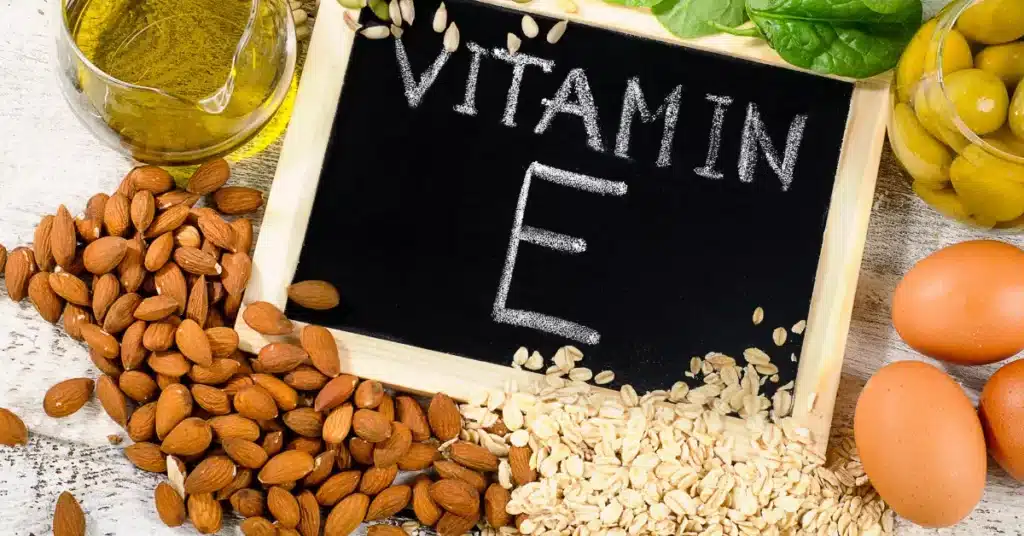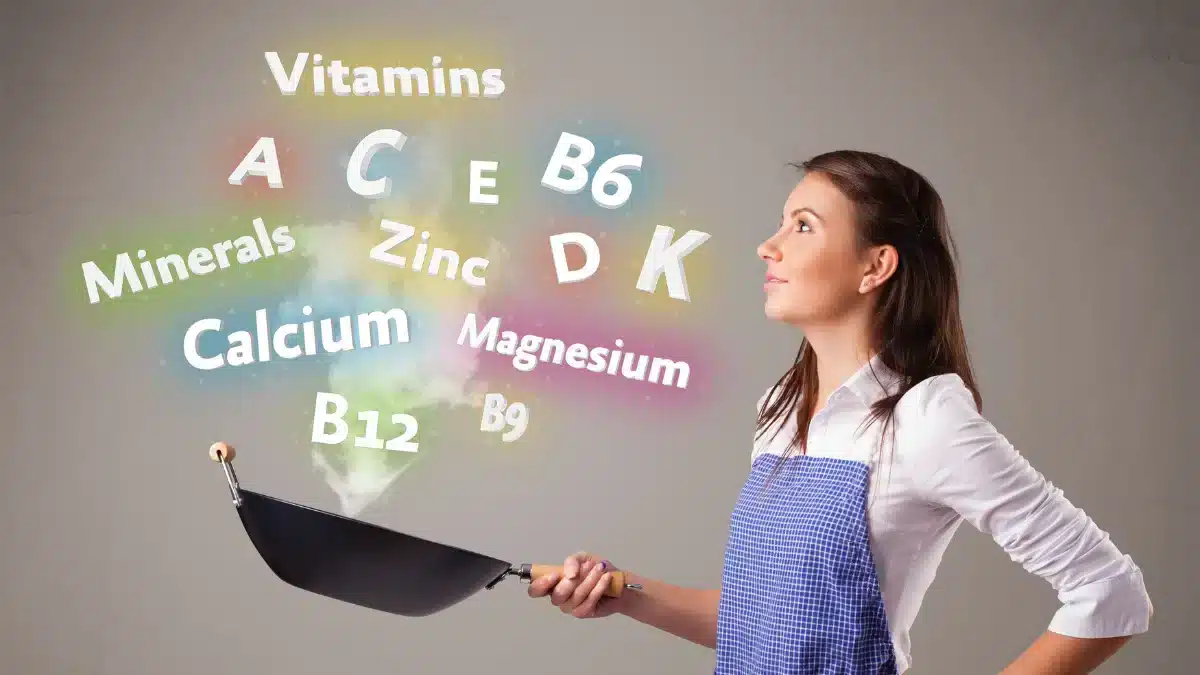4 Effective Minerals and Vitamins for PMDD
Premenstrual Dysphoric Disorder (PMDD) is a severe form of Premenstrual Syndrome (PMS).
While conventional medications can effectively alleviate severe PMDD symptoms, many individuals also desire to take a holistic approach to manage their condition.
One of the most common approaches to relieve PMDD symptoms is by introducing dietary changes.
Several dietary minerals and vitamins for PMDD are effective and can help alleviate the symptoms.
This comprehensive article elaborates on the various minerals and vitamins for PMDD to manage severe symptoms using the effectiveness of natural elements.
What are the best vitamins for PMDD
The table below briefly elaborates on the vitamins and minerals that help in the treatment of PMDD symptoms naturally:
| Vitamins and minerals | Recommended dosage |
|---|---|
| Vitamin B6 | 100 mg per day |
| Vitamin E | 600 IU per day |
| Calcium | 1200 to 1600 mg per day |
| Magnesium | 500 mg per day |
The best vitamins for PMDD symptoms are as follows:
Vitamin E

Vitamin E can significantly reduce the depression-associated symptoms in PMS and PMDD.
It can reduce irritability and stress.
Further, it has been reported that 1000 mg of Calcium and 400 IU of Vitamin E can significantly decrease the severity of all PMS symptoms.
The best food sources of vitamin E include the following:
- Almonds
- Sunflower oil
- Pumpkin
- Red bell pepper
- Mangoes
- Avocados
- Asparagus
- Peanut butter
Vitamin B6
Vitamin B6 is a water-soluble vitamin and is naturally available in many foods.
A 1999 study showed that up to 100 mg of Vitamin B6, when consumed daily, can be beneficial in treating PMS and premenstrual depression.
Further, as per the Journal of Caring Sciences, the combined use of Calcium and Vitamin B6 can enhance the effectiveness of treating severe PMS rather than Vitamin B6 alone.
The rich sources of vitamin B6 include the following:
- Beef liver
- Fish
- Organ meats
- Potato
- Starchy vegetables and fruits
- Fortified cereals
- Poultry
- Non-citrus fruits
Vitamin D
Vitamin D is a fat-soluble vitamin and is both a nutrient and a hormone.
According to Obstetrics and Gynecology, Vitamin D deficiency during the menstrual cycle’s luteal phase is associated with intensifying PMS symptoms.
Therefore, Vitamin D supplementation can increase serum levels and reduce severe PMS symptoms.
The food sources of Vitamin D are as follows:
- Flesh of fatty fish
- Cod liver oil
- Dairy and plant milk fortified with Vitamin D
- Egg yolks
- Fish liver oils
- Orange juice fortified with Vitamin D
- Beef liver
Vitamin C

Vitamin C is also effective as a PMDD treatment.
Vitamin C supplementation during PMS can significantly improve depressive symptoms.
According to a study by Obstetrics & Gynecology Science, the supplementation of Vitamin C improved psychiatric symptoms during PMS in the following percentage:
| Psychiatric symptoms | Percentage improvement |
|---|---|
| Depression | 54.1% |
| Stress | 35.8% |
| Anxiety | 51.43% |
| Aggression | 17.8% |
| Suicidal idea | 47.9% |
Additional minerals for PMDD
- Calcium: According to the Mayo Clinic, consuming 1200 micrograms of Calcium for PMDD is recognized to be effective in alleviating PMS and PMDD
- Magnesium: As per the American Academy of Family Physicians, Magnesium up to 500 mg per day is recommended to help alleviate PMDD symptoms
- Omega-3 fatty acid: Omega-3 fatty acids can reduce the psychiatric symptoms of PMS, such as anxiety, depression, nervousness, and lack of concentration
Conclusion
Vitamins and minerals can help in the treatment of Premenstrual Dysphoric Syndrome.
Four vitamins are scientifically proven to help women relieve their severe PMS or PMDD symptoms, including vitamins E, D, B6, and C supplements.
Further, women can also benefit from mineral supplements, including a diet rich in Magnesium, Calcium, and Omega-3 fatty acids.
Though these minerals and vitamins for PMDD are effective, they should be consumed in a required dose.
The overdose of vitamins may lead to certain side effects and affect a woman’s quality of life.
Therefore, it is recommended to consult a healthcare practitioner before taking vitamins and minerals to avoid side effects.
Frequently Asked Questions
Which vitamin intake must be increased during PMDD?
Women with PMDD must include Vitamins E, D, C, and B6 in their diet to help them alleviate the severe PMDD symptoms. Further, certain nutrients, such as Calcium, Magnesium, and Omega-3 fatty acids-rich diet, can also help treat PMDD symptoms.
Which type of Vitamin B is beneficial for PMDD?
Vitamin B6 is beneficial and helps alleviate PMDD symptoms. Vitamin B6 is a water-soluble vitamin. Women can acquire Vitamin B6 from dietary sources, including beef, fish, poultry, and non-citrus fruits.
What is the required quantity of Vitamins per day during PMDD?
The recommended dosage of Vitamin B6 is around 100 mg/day. Vitamin E up to 600 IU/day, Calcium around 1200 to 1600 mg/day, and Magnesium around 500 mg/day are also recommended.
What is the effect of Vitamin C on PMDD?
Vitamin C supplements are beneficial and help in treating the depressive symptoms of PMDD. It can improve the psychiatric symptoms of PMDD. In a study, it was found that the mean improvement in depression was 54.1% and 35.8% in stress.
WowRx uses only high-quality sources while writing our articles. Please read our content information policy to know more about how we keep our content reliable and trustworthy.






